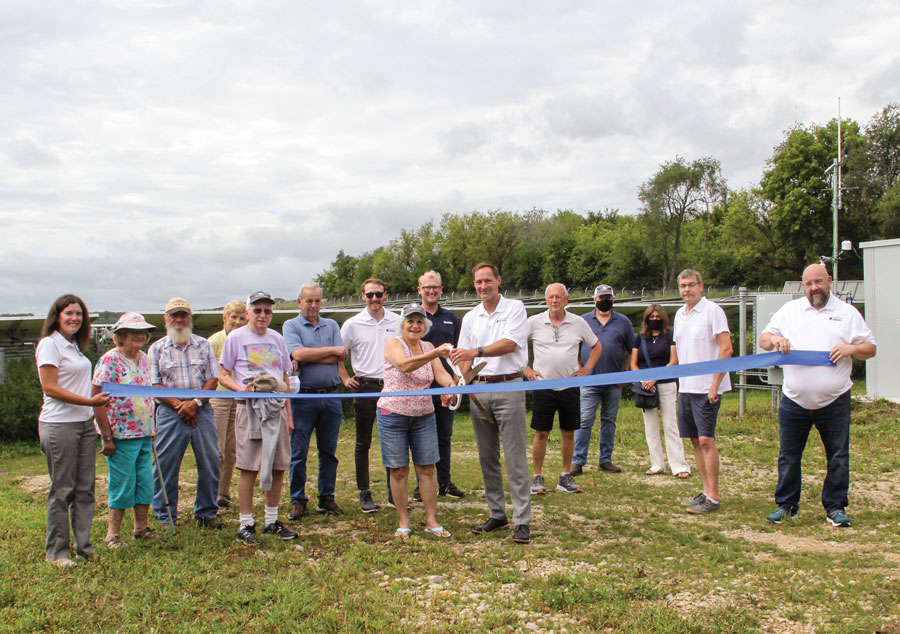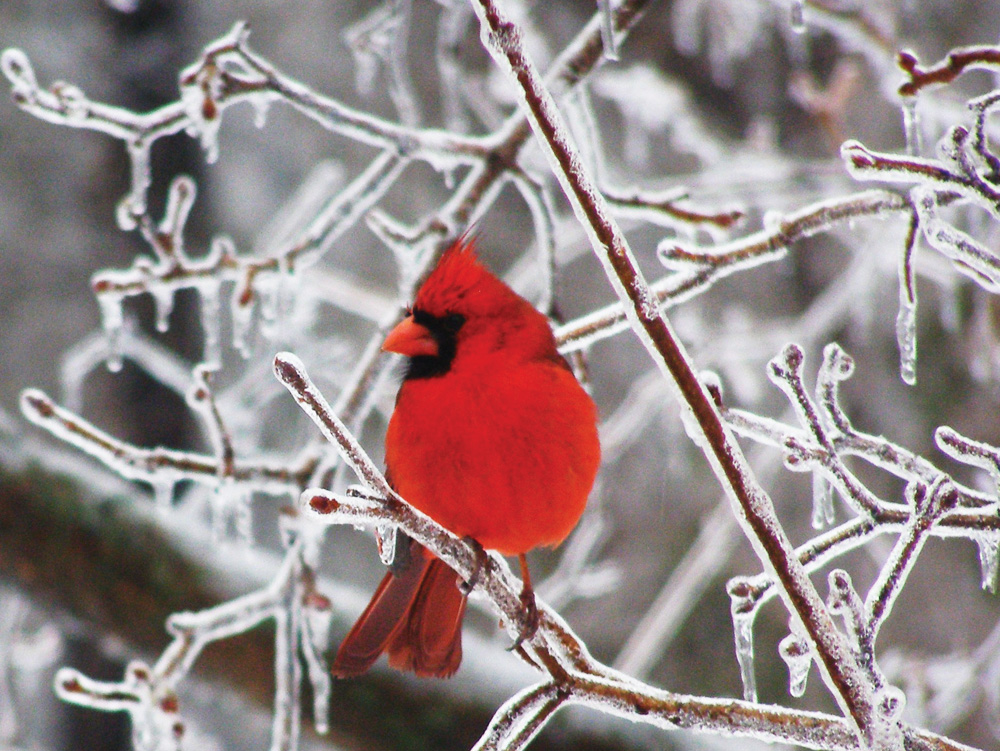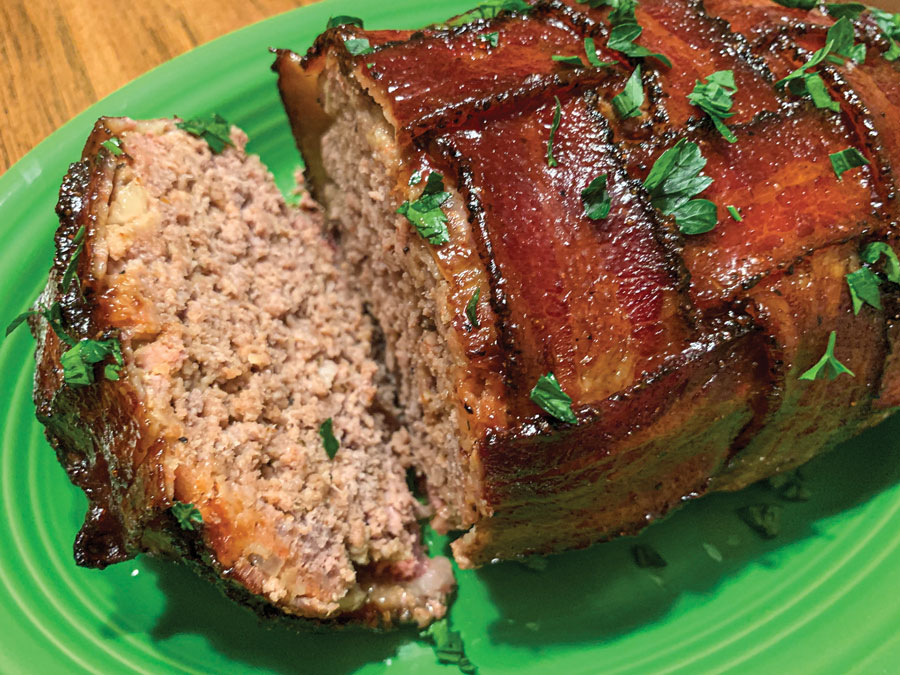The dictionary listing for “volunteer” seems incomplete.
With all due respect to Mr. Webster, the definition does not include the term “critical” or the word “essential.” It makes no mention of “loved” or “valued.”
There’s no picture next to the derivatives of the word showing Taylor Larson, Keith Fosse or Jason Bates. For that matter, there’s no image of a volunteer firefighter, an unpaid teacher’s aide, a Meals-on-Wheels delivery driver, a soccer coach, a fundraiser, math tutor, 4-H leader, highway litter team, hospital auxiliary member, Sunday School teacher, tour guide or thousands of other roles.
The dictionary falls short. Fortunately for non-profit organizations, charities, people in need and communities everywhere, many individuals do not let circumstances or even a definition prevent them from giving their time, money, hearts and themselves to causes they believe in.
According to Serve Illinois, the Illinois Department of Human Services’ Commission on Volunteerism and Community Service, more than 2.73 million Illinoisans perform more than 360 million hours of volunteer service every year. In fact, a recently released “Volunteering and Civic Life in America” study reported that nearly 30 percent of people statewide volunteer in one way or another.
“There are thousands upon thousands of people in Illinois who volunteer to help their own communities and reach out beyond their communities when there is an emergency or disaster situation. The people of our state are really conscientious about what needs to be done for our neighbors throughout Illinois,” explains Noelle Ayoka Mota Samuels, executive director of Serve Illinois. She describes her organization as a sort of cheerleader and provider of assistance and development for the community service world.
The heart of small-town America
Volunteerism is vital, especially in rural parts of the state, explains Elevate Illinois Executive Director Janet Mathis. Her organization is a grassroots effort to share successes and celebrate positive happenings in Illinois.
“It’s important for a lot of reasons,” Mathis says. “It’s more than giving back to your community; it is enhancing our communities and helping organizations do things that they otherwise wouldn’t be able to do, whether it is feeding the hungry, providing band uniforms to the local school or any number of other activities. These things can’t happen without volunteers. They are essential.”
Mathis explains that while we may think of volunteers as individuals, many volunteer services come from groups – civic or fraternal organizations, youth groups as part of churches, 4-H or FFA chapters or even families, led by parents instilling the idea of service to their children.
“It’s still the heart of small-town America and it’s really nice to see different generations bonding in giving back to the community,” she says.
Volunteers are priceless
In addition to the skills and hours given to causes and organizations, there is other value volunteers bring. Nationally, the value of volunteer hours is estimated at more than $171 billion. Leaders in not-for-profits, however, say volunteers are worth much more.
“Volunteers are priceless because they are doing things out of their own free will and their own hearts,” says Jesse Patenaude, executive director of Court Appointed Special Advocates of Effingham County. CASA relies on volunteers to advocate for abused or neglected children. “Volunteers are the foundation of our program,” she says. “Essentially, if we don’t have volunteers to serve, we don’t have a program.”

Groups like the Eastern Illinois Food Bank in Champaign rely on volunteers to help the organization distribute food to more than 180 food banks and agencies. Community Relations Associate Merry Mitchell says volunteers are essential.
“We have a very dedicated volunteer base that helps us do the things that need to be done. From repacking food to helping in the office, their efforts are so important,” she says.
Byram Fager, executive director of the Southern Illinois Community Foundation, a network of more than 100 not-for-profits in 17 counties, says many of the organizations he works with would not exist without volunteers.
“Basically, without volunteers, the cost to provide many of the services of these non-profits would be too expensive and there’s never enough fundraising to cover them,” Fager explains. “It would be impossible for them to hire people to do what their volunteers do.”
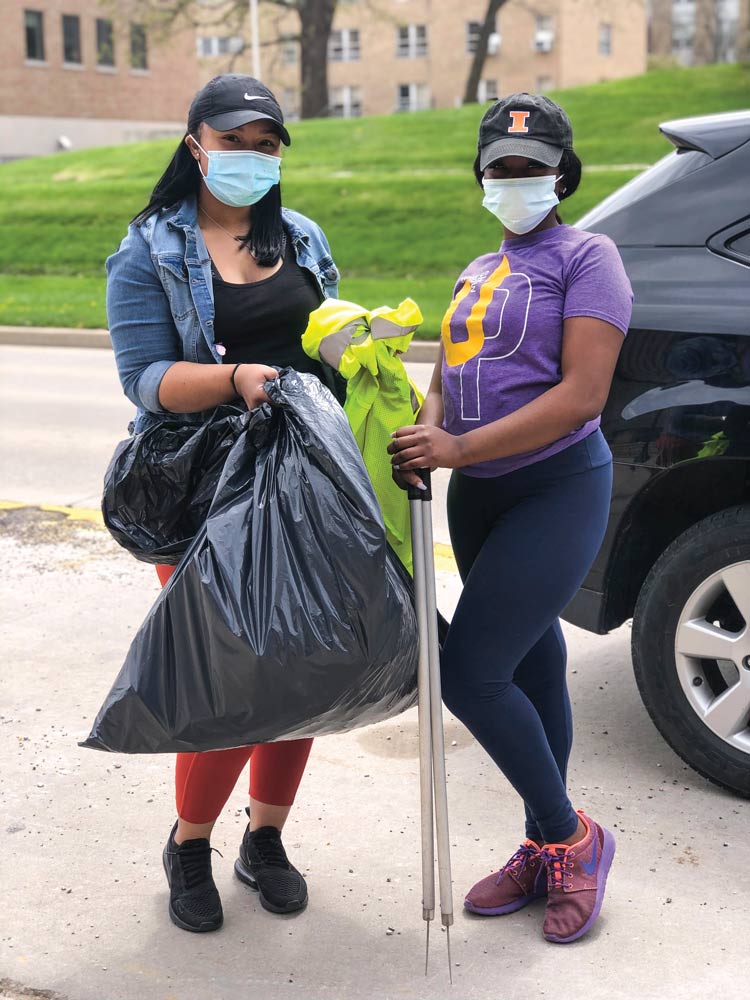
Volunteerism is so important that some colleges and universities require students to participate in community-based projects. Kiki Marshall, graduate assistant for volunteer programs at Western Illinois University says students not only benefit others by volunteering, they also gain new perspectives from the experience.
“I think they feel like it makes them more well-rounded individuals,” she says. “They become more aware of their surroundings, can pick up new skills and discover what it is like to be part of the community.”
For many people, volunteering is a way of serving others – something they often feel called to do.
“It’s absolutely personally rewarding,” Mitchell says. “I think many volunteers get a deep sense of satisfaction being able to contribute to something that can affect so many others. Being able to help another human being is definitely one of the most satisfying things you can ever experience.”
Filling the gap
Galva’s Jason Bates was recognized as one of Illinois’ Volunteers of the Week in 2020, but he says he pitches in not to be thanked, but because there are jobs to do.
“There’s just stuff that needs to be done in my community and things I want to support,” Bates says. “Of course, I want to set a good example for my kids, but most importantly, I want to elevate my community and make it better for my friends and family that live there.”
Bates has worked with youth organizations, organized a community concert series, raised funds for military veterans through a “Shave for the Brave” event, worked with the Knights of Columbus and volunteered for the regional Honor Flight program which takes veterans on free trips to Washington, D.C.
“I want to elevate people socially, culturally and economically,” he explains. “I just kind of do it on a selfish level. It’s something I want to do, and I get satisfaction from volunteering; you know, a feeling of making something better and making other people happy makes me happy and feel good.”
He maintains that volunteerism is contagious – a good thing for causes.
“When someone sees what you’re doing and it looks like something great to be involved in, they may say that they don’t have any certain skills, but they’d like to help,” he explains. “They say they don’t have anything to contribute but they do; you just have to give them the opportunity to be involved.”
Others find opportunities to serve that fit them perfectly – physicians who serve on medical missions, retired business leaders helping entrepreneurs or mechanics volunteering to maintain single parents’ vehicles, for example.
“A lot of times people serve in an area where they are gifted,” explains Keith Fosse who works with Kingdom Builders, a ministry of Marion’s Cornerstone Church. Fosse’s group often builds accessibility ramps to help people gain easier access to their homes. “For me, I love doing this sort of thing. For others, maybe it’s making a meal for someone or taking someone to the store. There’s lots that can be done.”
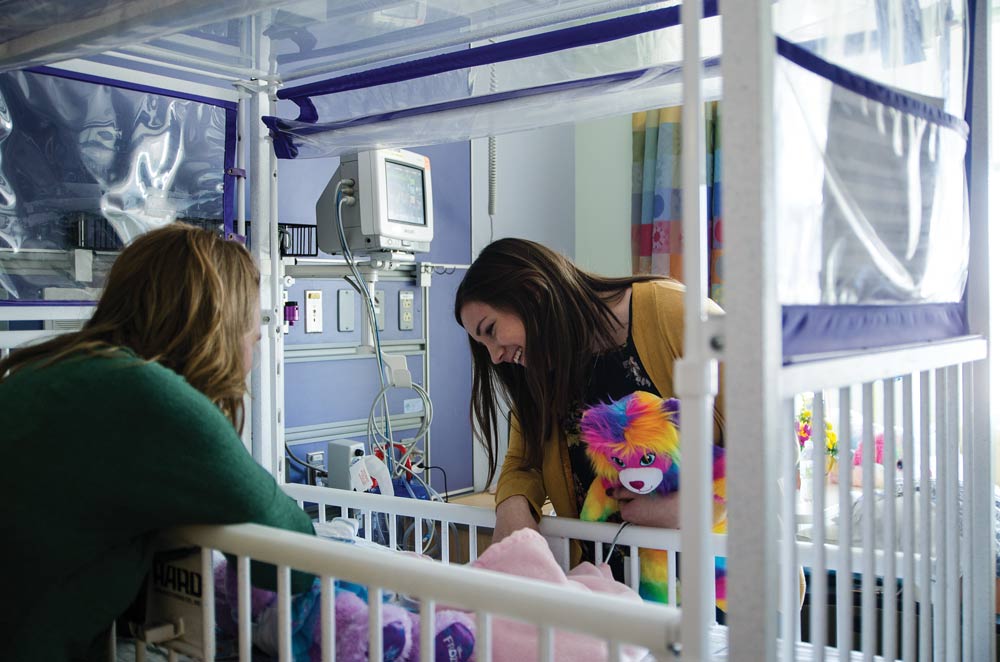
Sometimes, however, opportunities to serve others come from personal experiences. Taylor Larson of Chillicothe started collecting stuffed animals after hospital caregivers gave her “soft friends” during a childhood stay in the hospital when she was just 8 years old.
“I kind of panicked and the nurses were able to explain to me using a teddy bear what was going to happen with my procedures,” Larson recalls. “When I woke up, my teddy bear was there. It was just a way to help ease my fears and it made a huge difference to me.”
The act of kindness and comfort made such an impact on Larson that today, the 21-year-old is the volunteer director of her own not-for-profit, Cuddles for Kids. The organization gives stuffed animals to children in hospitals, homeless shelters, foster care or in what Larson calls “unfortunate situations.” She says the organization, which has presented more than 15,000 stuffed animals in five years, relies on volunteers.
“We’ve probably had a couple hundred different volunteers and there’s no way we could operate Cuddles for Kids without them,” she says.
Make a difference
Bates says he sees volunteering as a way to bring life back to smaller communities such as Galva.
“Many of these small towns have lost people, businesses and energy. When people can get together for a project and have a common goal, no matter how small, they bring energy back and begin to make a difference,” he says.
“There’s so much that volunteers can do,” Fager adds. “There’s an entire range of things. They can sit and talk, getting to know someone else. You can volunteer as little as an hour a month all the way to those who volunteer for the equivalent of a full-time role.”
“Volunteers are hugely important for Special Olympics. Our organization could not exist today without the time and energy, education and commitment of volunteers. We rely on people of all ages to help in every aspect of our program, both on a local and state level,” says Joanie Keyes, director of Special Olympics of Illinois Region I, which serves the Decatur area.
Keyes says volunteers with Special Olympics range from those who give a few hours during events with athletes to others who serve on boards and committees all year long.
“We welcome volunteers of all sorts, but those who have specific talents and really get involved can make us a better organization,” she says. “Volunteers are a large part of what we do and how we do it.”
More volunteers = more services
Non-profit leaders hesitate to think where their groups would be without unsolicited help.
“I think if the majority of our organizations did not have such a strong volunteer base, it would be very hard for them to provide the level of service that they do,” Fager said. “Of course, all of them probably could provide more services to the community if they had more volunteers.”
Elevate Illinois’ Mathis agrees.
“Our country was founded on volunteers,” she notes. “Without them, things wouldn’t happen. We wouldn’t have some of the great organizations and services we have, we wouldn’t have county fairs anymore, we wouldn’t have a lot of things we love.”
Serve Illinois’ Samuels says without a spirit of volunteerism and those caring about one another, people would be sicker, hungrier, more frightened and lonelier.
“Honestly, if we did not have a culture of volunteerism, a lot of our neighbors would be in bad shape,” she says.


